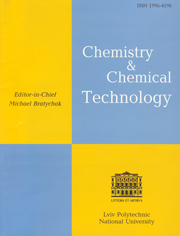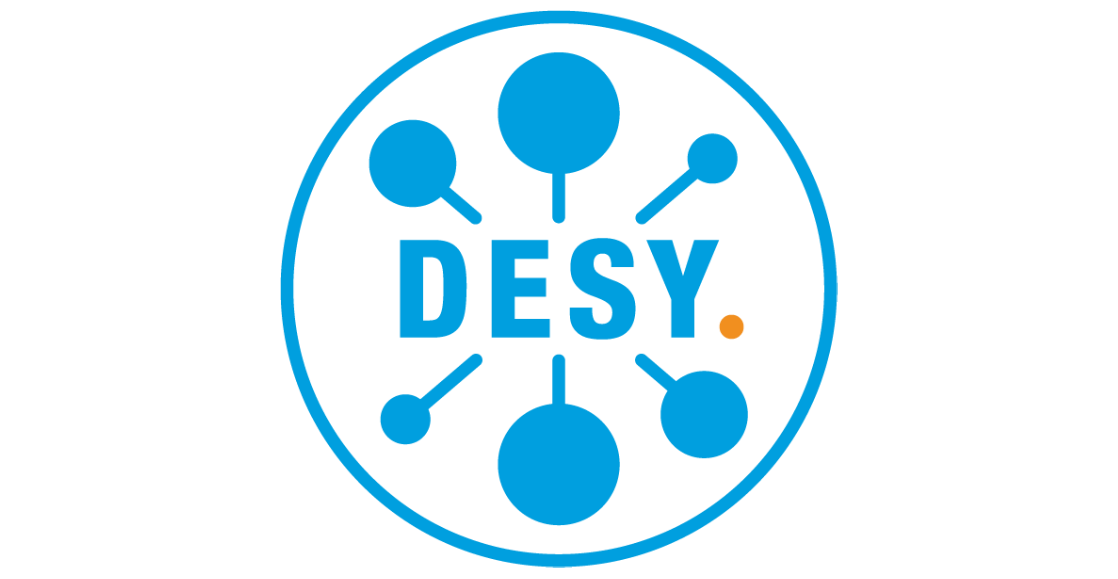Design, Synthesis and Biological Activity of the 4-Thioquinoline Derivative
| Attachment | Size |
|---|---|
| 531.12 KB |
[1] Saklayen, M.G. The Global Epidemic of the Metabolic Syndrome. Curr. Hypertens. Rep. 2018,20, 12. https://doi.org/10.1007/s11906-018-0812-z
https://doi.org/10.1007/s11906-018-0812-z
[2] Martins, A.D.; Majzoub, A.; Agawal, A. Metabolic Syndrome and Male Fertility. World J. Men's Health2019, 37, 113-127. https://doi.org/10.5534/wjmh.180055
https://doi.org/10.5534/wjmh.180055
[3] Barati, E.; Nikzad, H.; Karimian, M. Oxidative Stress and Male Infertility: Current Knowledge of Pathophysiology and Role of Antioxidant Therapy in Disease Management. Cell. Mol. Life Sci.2020, 77, 93-113. https://doi.org/10.1007/s00018-019-03253-8
https://doi.org/10.1007/s00018-019-03253-8
[4] Sanocka, D.; Kurpisz, M. Reactive Oxygen Species and Sperm Cells. Reprod. Biol. Endocrinol.2004, 2, 12. https://doi.org/10.1186/1477-7827-2-12
https://doi.org/10.1186/1477-7827-2-12
[5] Ursini, F. Oxygen, Sulfur, Selenium, Iron and Lipid Peroxidation: How GPx4 Controls Cell Life and Death. Free Radic. Biol. Med. 2019, 139, S3-S3.
[6] Yadav, V.; Reang, J.; Sharma, V.; Majeed, J.; Sharma, P. C.; Sharma, K.; Giri, N.; Kumar, A.; Tonk, R. K. Quinoline-Derivatives as Privileged Scaffolds for Medicinal and Pharmaceutical Chemists: A Comprehensive Review. Chem. Biol. Drug Design 2022, 100, 389-418. https://doi.org/10.1111/cbdd.14099
https://doi.org/10.1111/cbdd.14099
[7] Brazhko, O.A.; Omelyanchik, L.O.; Zavgorodniy, M.P.; Martynovsky, M.P. Khimiya ta biolohichnaaktyvnistʹ 2(4)-tiokhinolinivi 9-tioakrydyniv;ZNU:Zaporizhzhia, 2013.
[8] Zeleke, D.; Eswaramoorthy, R.; Belay, Z.; Melaku, Y. Synthesis and Antibacterial, Antioxidant, and Molecular Docking Analysis of Some Novel Quinoline Derivatives. J Chem2020,2020, 1324096.https://doi.org/10.1155/2020/1324096
https://doi.org/10.1155/2020/1324096
[9] Ali, M.M.A.; Suriyan, G.U.; Surya, K.J.; Mani, K.S. Synthesis of Bioactive Quinoline Appended Spiro Pyrrolidinesas Antioxidants. J. Heterocycl. Chem. 2023, 60,1558-1564.https://doi.org/10.1002/jhet.4699
https://doi.org/10.1002/jhet.4699
[10] Haeusler, I.L.; Chan, X.H.S; Guerin, P.J. The Arrhythmogenic Cardiotoxicity of the Quinoline and Structurally Related Antimalarial Drugs: A Systematic Review. BMC Med.2018, 16, 200. https://doi.org/10.1186/s12916-018-1188-2
https://doi.org/10.1186/s12916-018-1188-2
[11] Kang, S.K.; Woo, J.; Cho, S.; Lee, S,E.; Kim, Y.K.; Yoon, S.S. Synthesis of Benzo[g]quinoline Derivatives and Their Electroluminescent Properties. J. Nanosci. Nanotechnol.2019,19, 4543-4548. https://doi.org/10.1166/jnn.2019.16687
https://doi.org/10.1166/jnn.2019.16687
[12] Hu, Y.Q.; Gao, C.; Zhang, S. Quinoline Hybrids and Their Antiplasmodial and Antimalarial Activities. Eur. J. Med. Chem. 2017, 139, 22-47. https://doi.org/10.1016/j.ejmech.2017.07.061
https://doi.org/10.1016/j.ejmech.2017.07.061
[13] Brazhko, O.; Gencheva V.; Kornet M.; Zavgorodniy, M. Modern Aspects of Creating of Drugs Based QuS-Program Development;LAP LAMBERT Academic Publishing, 2020.
[14] Kornet, M.M.; Brazhko, О.А., Zavhorodniy M.P.; Tkach, V.V.; Kruglyak, O.S.; de Oliveira, S.C. Electrochemical Determination of Antioxidant Activity of New 4-Thiosubstituted Quinoline Derivatives with Potential Radioprotecting Properties. Biointerface Res. Appl. Chem.2021,11, 9148-9156. https://doi.org/10.33263/BRIAC112.91489156
https://doi.org/10.33263/BRIAC112.91489156
[15] Bogdan, A.M.; Brazhko, S.; Labenska, I.B.; Brazhko, O.A. Acute Toxicity and Hypoglycemic Activity of 7-Chloro-4-thio-substituted Quinoline. Bulletin of Zaporizhzhia National University. Biological Sciences2019, 1, 23-30. https://doi.org/10.26661/2410-0943-2019-1-03
https://doi.org/10.26661/2410-0943-2019-1-03
[16] Brazhko, O.O.; Zavgorodny, M.P.; Kruglyak, O.S.; Omeljanchik, L.O.; Shapoval, G.A.Antioxidant Activity of Alkoxy Derivatives of (Quinoline-4-ylthio)carboxylic Acids. UkrBiochem J2015, 87, 95-102.https://doi.org/10.15407/ubj87.02.095
https://doi.org/10.15407/ubj87.02.095
[17] Yang, R.; Ma, Y.; Huang, T.; Xie, W.; Zhang, X.; Huang, G.; Liu, X. Synthesis and Antifungal Activities of 4-Thioquinoline Compounds. Chinese J Org Chem2018, 38, 2143-2150. https://doi.org/10.6023/cjoc201801024
https://doi.org/10.6023/cjoc201801024
[18] Chen, J.; Lu, J.; Xie, F.; Huang, L. QuinolineMercaptoacetate Sulfonamide Derivative, Intermediate, Pharmaceutical Derivative or Formulation, and Preparation Method and Use Therefor. WO2022242782 A1, November 24, 2022.
[19] Metelytsia, L.; Hodyna, D.; Dobrodub, I.; Semenyuta, I.; Zavhorodnii, M.; Blagodatny, V.; Brazhko, O.; Design of (Quinolin-4-ylthio)carboxylic Acids as New Escherichia coli DNA Gyrase B Inhibitors: Machine Learning Studies, Molecular Docking, Synthesis and Biological Testing. ComputBiolChem2020, 85, 107224. https://doi.org/10.1016/j.compbiolchem.2020.107224
https://doi.org/10.1016/j.compbiolchem.2020.107224
[20] Lagunin, A.; Zakharov, A.; Filimonov, D. QSAR Modelling of Rat Acute Toxicity on the Basis of PASS Prediction. Mol. Inform. 2011, 30, 241-250. https://doi.org/10.1002/minf.201000151
https://doi.org/10.1002/minf.201000151
[21] Brazhko, O.A.; Zavgorodniy, M.P.; Kornet, M.M.; Lagron, A.V.; Dobrodub, I.V. Synthesis and Biological Activity of Derivatives (2-Methyl(phenyl)-6-R-quinolin-4-yl-sulphanyl)carboxylic Acid. Sci. Rev.[Online] 2018, 7, 8-10. (accessed Nov 10, 2022).
[22] Brazhko, O.A.; Zavgorodniy, M.P.; Dobrodub, I.V.; Omelyanchik, L.O.; Gencheva, V.I.; Novosad, N.V.; Brazhko, O.O. SposibOtrymannya A(Heteryl-(Tio))-BurshtynovoyiKysloty. Pat. Ukraine 60110, June 10, 2011.
[23] Brazhko, O.A.; Kornet, M.M.; Zavgorodniy, M.P. S-(Azaheteryl)tsysteaminy ta Yikh Soli. Pat. Ukraine 97937, March 26, 2012.
[24] Toxicity Estimation Software Tool (TEST).Washington: U.S. Environmental Protection Agency.https://www.epa.gov/chemical-research/toxicity-estimation-software-tool-... (accessed 2022-10-21).
[25] Web service for predicting acute toxicity of compounds to mammals. https://www.epa.gov/chemical-research/toxicity-estimation-software-tool-... (accessed 2023-04-20).
[26] Reznikov, O.G. Zahalʹni etychni pryntsypy eksperymentiv na tvarynakh. Pershyynatsionalʹnyykonhres z bioetyky. Endocrinology2003,8, 142-145.
[27] Stefanov, O.V. Doklinichnidoslidzhennyalikarsʹkykhzasobiv (metodychnirekomendatsiyi);Avitsena:Kyiv, 2001.
[28] Gubskiy, Yu.I.;Dunayev, V.V.; Bulenichev, I.F. Metodyotsinkyantyoksydantnykhvlastyvosteyfiziolohichnoaktyvnykhspoluk pry initsiatsiyivilʹnoradykalʹnykhprotsesiv in vitro (metodychnirekomendatsiyi); Kiev, 2002.
[29] PASS. http://www.ibmh.msk.su/PASS(accessed 2023-04-17).
[30] Filimonov, D.A.; Lagunin, A.A.; Gloriozova, T.A.; Rudik, A.V.; Druzhilovskii, D.S.; Pogodin, P.V.; Poroikov, V.V. Prediction of the Biological Activity Spectra of Organic Compounds Using the Pass Online Web Resource. Chem.Heterocycl. Compd. 2014, 50, 444-457. https://doi.org/10.1007/s10593-014-1496-1
https://doi.org/10.1007/s10593-014-1496-1
[31] European Convention for the Protection of Vertebrate Animals Used for Experimental and Other Scientific Purposes. Strasbourg: Council of Europe, 1986. http://www.arsal.ro/wp-content/uploads/2017/02/ETS-123-1.pdf(accessed 2023-01-11).
[32] Rudik, A.; Dmitriev, A.; Lagunin, A.; Filimonov, D.; Poroikov, V. MetaPASS: A Web Application for Analyzing the Biological Activity Spectrum of Organic Compounds Taking into Account Their Biotransformation. Mol. Inform. 2021, 40, 2000231. https://doi.org/10.1002/minf.202000231
https://doi.org/10.1002/minf.202000231










